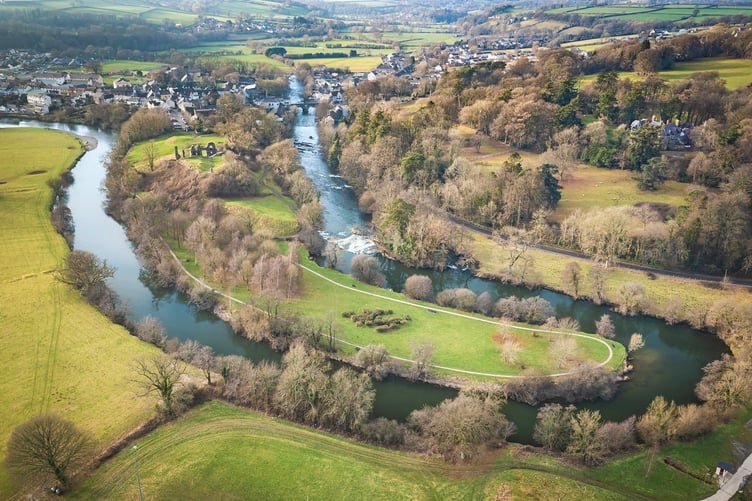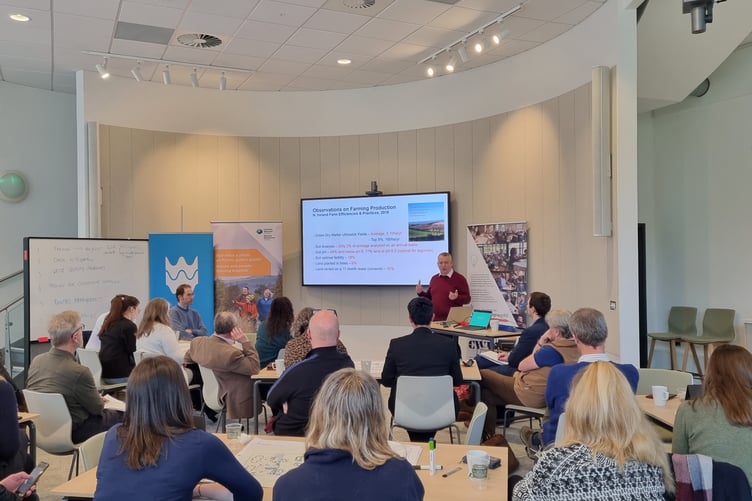A two-day hackathon event took place last week seeking solutions to the high pollution levels of the Afon Teifi.
Last year Dŵr Cymru/ Welsh Water admitted to illegally spilling millions of litres of raw sewage into rivers in Wales, with the river Teifi, spanning across Ceredigion and Carmarthenshire, being one of the worst hit.
Community groups, charities, and expert organisations came together to tackle issues contributing to the pollution including land use and agriculture adding to pollution levels through land runoff, as well as how enforcement and regulation can be improved.
The event also explored citizen science initiatives, a long-called-for idea from the resident-led grassroots group Save the Teifi to boost community collaboration and support water quality monitoring.
Sir David Henshaw, chair of Natural Resources Wales (NRW) which hosted the event, said: “It’s been fantastic to gather such a wealth of knowledge, experience and expertise together in one room.

“We know what the issues are facing the Teifi, like many other rivers in Wales, but identifying long-lasting and tangible improvements will require stronger relationships, novel ways of working, and innovative approaches to both new and old challenges.
“The support and commitment we’ve received across these two days has been invaluable, with partners working towards a shared ambition of improving the Afon Teifi for its people and wildlife.
“These discussions will inform the scope of the project going forward.”
As part of a new project from Welsh government-sponsored body NRW, the organisation hosted the hackathon-style event on 28 and 29 February at Aberystwyth University.
The project dubbed the Teifi Catchment Demonstrator Project launched by NRW last November, a month after Dŵr Cymru committed to investing £42 million into improving river water quality in the Teifi.
The project involves 16 partners and has now applied for Ofwat funding to deliver the plans. The ambition for the project is to develop a model that can be scaled up and replicated in other Welsh river catchments in the future. The Teifi river suffers from high phosphorus levels, which can cause algae and underwater plants to grow significantly, reducing the level of oxygen in the river to levels that can become harmful to wildlife, other plants and have negative knock-on effects for humans too.
Save the Teifi grassroots group has been campaigning for “immediate action” after the problem was left unaddressed for over a decade, according to them. This comes a day after Save the Teifi demanded an official apology and a “concrete and immediate” action plan to improve conditions on the Teifi.


.png?width=209&height=140&crop=209:145,smart&quality=75)
.png?width=209&height=140&crop=209:145,smart&quality=75)

Comments
This article has no comments yet. Be the first to leave a comment.